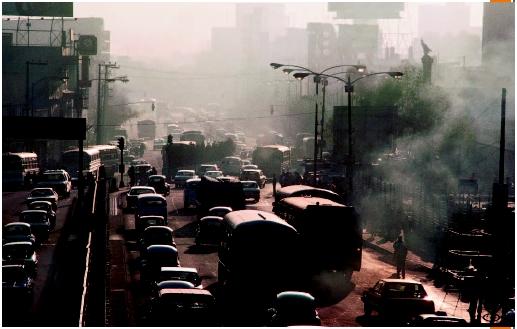1. Particulate Pollution
The first effect is particulate pollution. A recent study of air quality in several major cities in North America concluded that fossil fuel pollution outdoors is comparable to second hand smoke indoors as a potential cause of lung cancer. Coal is also particularly high in particulates, and prolonged exposure to particulate pollution can cause a variety of health effects, including respiratory and cardiovascular problems such as asthma, emphysema, bronchitis, lung cancer and heart disease.
Particularly bad coal smogs killed 2200 Londoners in 1880, for example, and another 4000 as late as 1952. The world's ten most polluted cities, mostly in China, are all heavy coal users. Globally, it is estimated that particulates and other pollutants from coal and other fossil fuels continue to cause about 500,000 premature deaths, and millions of respiratory illnesses per year. Mining coal is also not a healthy profession, commonly leading to pneumocniosis, or "Black Lung," from constant inhalation of coal dust (Dunn 1999).

During the morning rush hour, the Miguel Hidalgo area of Mexico City is clogged with traffic and smog.

